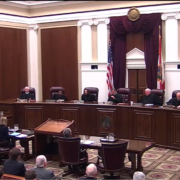Collaborative Law Rules Approved by Florida Supreme Court
On May 18, 2017, the Florida Supreme Court published an opinion approving collaborative law rules. The collaborative law rules are the last step necessary before Florida’s Collaborative Law Process Act goes into effect.

The opinion approves Rule Regulating the Florida Bar 4-1.19 and Florida Family Law Rule of Procedure 12.745.
Rule Regulating the Florida Bar 4-1.19
Florida Bar Rule 4-1.19 is a rule of professional conduct. It creates certain obligations of attorneys representing clients within the collaborative process. Among other things, the rule requires collaborative lawyers to do the following when contemplating collaborative practice with a client:
- Provide sufficient information about the benefits and risks of the collaborative process;
- Explain alternatives to the collaborative process, including litigation and mediation;







